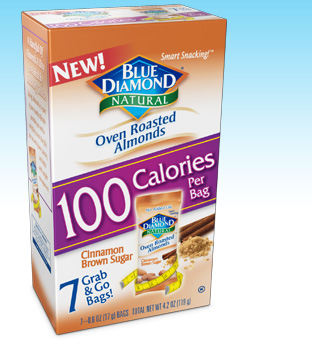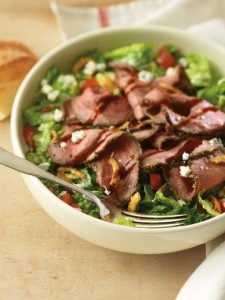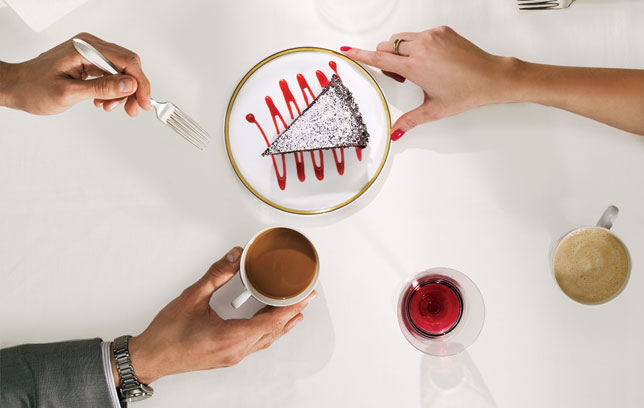21 Nutrition Rules to BE AWESOME
There’s a lot of nutrition junk out there. A LOT.
And we hear more and more of every day. But just in the last week, we received several emails asking if we could change just 1 nutrition habit of a person, what would it be? Just 1.
Hmmmm.
That’s really tough to narrow down, but it got us thinking that we should put together a list of ‘basics’ – through thick and thin, as fad diets come and go, these are solid nutrition behaviors that if you do nothing else but work on these daily habits we can promise you 3 things:
- You’ll feel better.
- You’ll look better.
- You’ll have more energy.
Sold?
Now don’t read this thinking we’re sharing some voodoo nutrition secrets of the stars – but until you master these basics, you shouldn’t be worrying about those "secrets" anyhow.
21 Nutrition "Rules" to Look Better, Feel Better and Have More Energy
- Beware of anything that makes no sense. Nutrition specific? Kind of — because people are always promising the world in this field, yet often have little to back it up. This is particularly true with supplements. And, as your mom always said, if it sound too good to be true, it is. There are no miracles pills, potions or foods out there. Stop looking.
- Eat a vegetable and/or fruit with each meal. Often people talk about certain fruits and veggies being "off limits" but that, well, makes no sense (see #1). There are NO bad veggies and fruits. Some are ‘A’ players and others more ancillary, but none are inherently "bad." And we don’t care of these are organic or conventionally grown. We just want you to eat more. And we want you to eat ones that are darker in color, like berries & leafy greens like spinach and Swiss chard, etc.
- Eat Breakfast. Daily. While intermittent fasting is getting popular with some, the majority of research and clients we work with would benefit from eating breakfast regularly. The key is a quality breakfast — making sure it has some protein, some veggies or fruit (see #2), and little to no added sugar. Research suggests the right fuel will give you more energy, improve your mental function, and will help you eat less overall during the day.
- Include protein with each meal & snack. Protein helps fill you up, provides the amino acids you need to function and recover, and since there is not "storage" place for protein in your body, frequent feedings help provide what’s needed by your body regularly. It’s particularly important in the first meal of the day since you’ve been fasted for 7+ hours (see #3).
- Start Every Day with 1 Glass of Water. Make it the first thing you put in your body. Ice cold water. No science. To me it’s mental — starting your day with something pure and cold water feels amazing after not eating or drinking for the last 7+ hours.
- Drink 2 Cups of Water Before EACH Meal. Dr. Brenda Davy and her Team at VA Tech found that when people drank 2 cups of water before each meal, they ate less overall and lost more weight at the end of the 12 week study. Everything else was the same. Water helps fill you up.
- Don’t Drink Your Calories. Piggybacking on #5 and #6, note that water is what’s suggested. Not soda, Sweet tea, fruit punches or anything else along those lines. Americans drink about 450 calories each day. Replace this single source of calories with water and it could mean nearly a 50 lb weight loss after 1 year. Seriously.
- Think Fiber. Not Carbs. Carbohydrates get a bad wrap. From the very low carb diets, to the celebrities who go "gluten free" to lose weight. It’s not about carbs. It’s about quality. And focusing on fiber will help. Focus on whole grains – quinoa, barley, Farro and the like — and you’ll get loads of fiber and vitamins that are important for you. Aim for a minimum of 25 grams daily.
- More is Not Better. Fiber is good. Around 25 grams is good like I said in #8 — it doesn’t mean if 25 is good, 100 is better. You won’t leave the bathroom and you’ll have no friends because when you’re around them, you’ll be too gassy, bloated and uncomfortable. Same with anything else we talk about. Protein is good. Water is good. Vitamins and minerals are necessary. Don’t be extreme.
- Take Fish Oil. We aren’t huge supplement pushers, by any means. We do think fish oil would benefit everyone. We take it daily. Ella and Sophia take it regularly (they’re 3 yrs and 9 months, respectively). And, in fact, one study out of Harvard showed there are up to 96,000 deaths per year from low omega-3 intakes. We use, like and trust Nordic Naturals.
- Everything Works. Change works. The novelty of change works. The key, though, is to change your habits so you’re not jumping from diet to diet trying to find the next, best and greatest ‘thing.’ You shouldn’t have to "change" when you follow simple, sound principles and practice good habits. A friend told me this morning about a diet that promises a 10 lb weight loss in 10 days. She said the first meal is 1/4 cup of oatmeal and ONE (1) walnut. Yes, everything works for a short time.
- Eat Beans. Beans are a great source of carbohydrate (see #8), super high in fiber, a decent source of protein and help fill you. They’re also packed with various vitamins and minerals. Aim for 1-2 servings daily.
- Plan Ahead. While not about a specific food, per se, it does change your food choices. Fail to plan and plan to fail. We make our menu on a weekend and grocery list from that menu. We pack Ella’s lunch the night before she goes to her school. When we forget either of those, our days and week are completely different and we are flying by the seat of our pants, rushing to get things done and making poor choices. This is maybe the most important rule out of any of them … I promise you, planning ahead will completely transform you mentally and physically.
- Eat Frequently. It surely doesn’t have to be 6 times per day or even 5 times per day. Do what works for you, within your schedule. What we do know is eating consistently is important so you aren’t left without a plan and when very hungry, quickly turn to fast food or another "quick fix." The key is planning ahead (see #13).
- Make Veggies/Fruit the Base of Your Meal. This goes with #2. When you do this, you’ll eat more of them. Here’s an example. Want some oatmeal with blueberries? Great — fill the bowl with blueberries, first, then top with oats. Making chicken stir fry? Have veggies as the base (vs. rice or noodles), then add the chicken on top. This is a simple way to bump up that produce intake and decrease your less healthy carb intake.
- Have Most of Your Carbs Come from Veggies/Fruit. Have we hammered this one home enough, yet? These both provide carbs (along with a ton of other nutrients). They’re where most of your carbs should come from. Make the switch and notice the difference.
- Dessert is a Sometimes Thing. We’re all about dessert. Sometimes. We tell Ella dessert is a "sometimes thing." You don’t need a sweet every night after dinner. Make it special by having it occasionally and enjoying a quality dessert. Eat real ice cream, no sugar free, fat free, flavor free chemicals. Occasionally. Same thing goes for any other dessert. Eat small portions of the real thing once in awhile.
- Don’t Use Added Sugar. Funny to list this after talking about eating dessert, but again, that is only occasionally. Overall we add way too much sugar to our foods, over double what’s recommended. If you think a food is bland, find an alternative to boost flavor or find a more flavorful food. Sugar shouldn’t be that alternative.
- Supplements are Compliments. Don’t ask us what supplements you should take if you didn’t eat breakfast and are going to grab fast food for lunch, then meet friends out for drinks later. I gave a talk once to a local high school football team — this high school is consistently ranked top (or close to the top) in the country. My first question — "how many of you ate breakfast this morning?" 3 people raised their hand out of about 80 or so. THREE. Yet I was asked to talk about supplements. Supplements compliment a quality diet. They don’t replace or make up for a poor diet. Taking fish oil (#10) — omega 3s — are a basic ingredient we should eat daily so think of it like that when we suggested taking them daily.
- Eat Together. Without TV. If you have a family, eat with them. As much as possible. And talk vs. being distracted by TV. One study showed just 25% of 17 year olds at dinner with their family regularly (sad, but true). Unfortunately, the statistics are clear that kids who eat with their family are healthier, happier and better students.
- Eat Less. Over the last 40 years, our calorie intake has increased by around 800 calories per day. EIGHT HUNDRED. So even outside of what we eat, just simply eating less is a good idea. Eat until your satisfied, not stuffed.
- Don’t Eat Cookies in the Day time. Yes, yes — we said 21. This one doesn’t really "count." But we thought it was funny — Kara packed Ella a special homemade cookie that she and Ella made the other day. When I picked her up from school she said "WHY did mommy put a cookie in my lunch? We don’t eat cookies in the day time?" So that now became rule #22. No cookies in the day time.
After years and years of working with all different clients, from pro athletes to soccer moms, billionaire CEO’s to factory workers … we stand by these 21 (errr, 22) "rules." And at the end of the day, they’re all rather simple to implement.
The key is to take action and simply get started!
-
Try Jason Stathams Weight Loss Workout at
“He’s a bit lardy, isn’t he?” Jason Statham sa
-
Go to Gym, Get Paid, Repeat
Dollar signs shrink your gut, according to a new Mayo Clinic study.
-
Weight Loss and Snacks
This study could cause you to lose your appetite. British researchers
-
Diet Strategies: Increase Metabolism
Its 9:25 in the morning, and Im lying on a twin bed at the Penni
-
Get Rid of a Food Craving
Food cravings are like weeds in your lawn: They pop up out of nowhere,
-
Diet Strategies: Vegetarian Weight Loss
Dont Veg Out It makes sense in theory: Replace cold cuts with celery a
- DON'T MISS
- Food Flips for Fat Loss
- Dieting and Your Relationships
- Running Weight Loss Success Story
- Cholesterol Weight Loss Success Story
- Abs Diet: High Fructose Corn Syrup
- Willpower is Overrated
- Cooking Weight Loss Success Story
- Abs Diet Recipes: Sirloin Tips
- Eat MORE to LOSE More!
- Weight Loss: Abs Diet Dairy Foods




